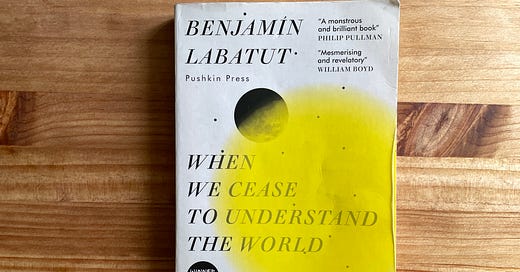When We Cease to Understand the World
Thoughts on Benjamin Labatut's Metamodern History
We shall not cease from exploration,
and the end of all our exploring
will be to arrive where we started
and know the place for the first time.
T.S. Eliot
1
The other week, I was sitting in the emergency room for multiple hours—not to fear, everyone’s okay—trying to read through Benjamin Labatut’s experimental novel about genius scientists and mathematicia…
Keep reading with a 7-day free trial
Subscribe to if not, Paris to keep reading this post and get 7 days of free access to the full post archives.




